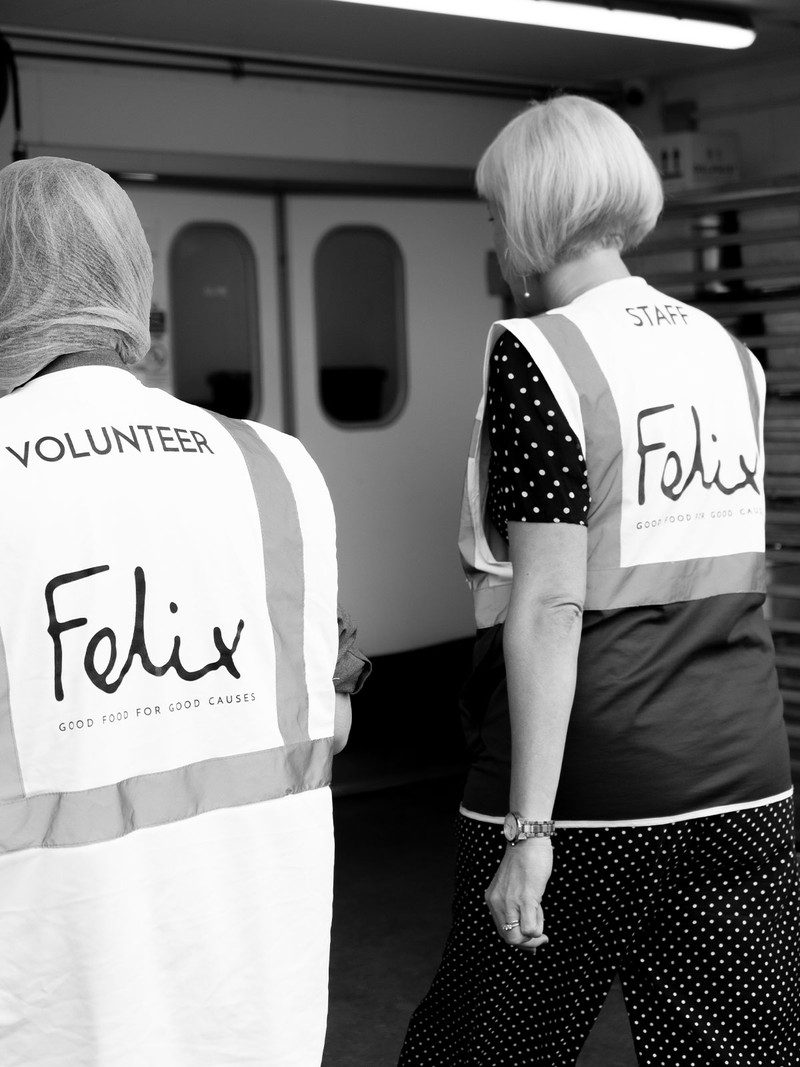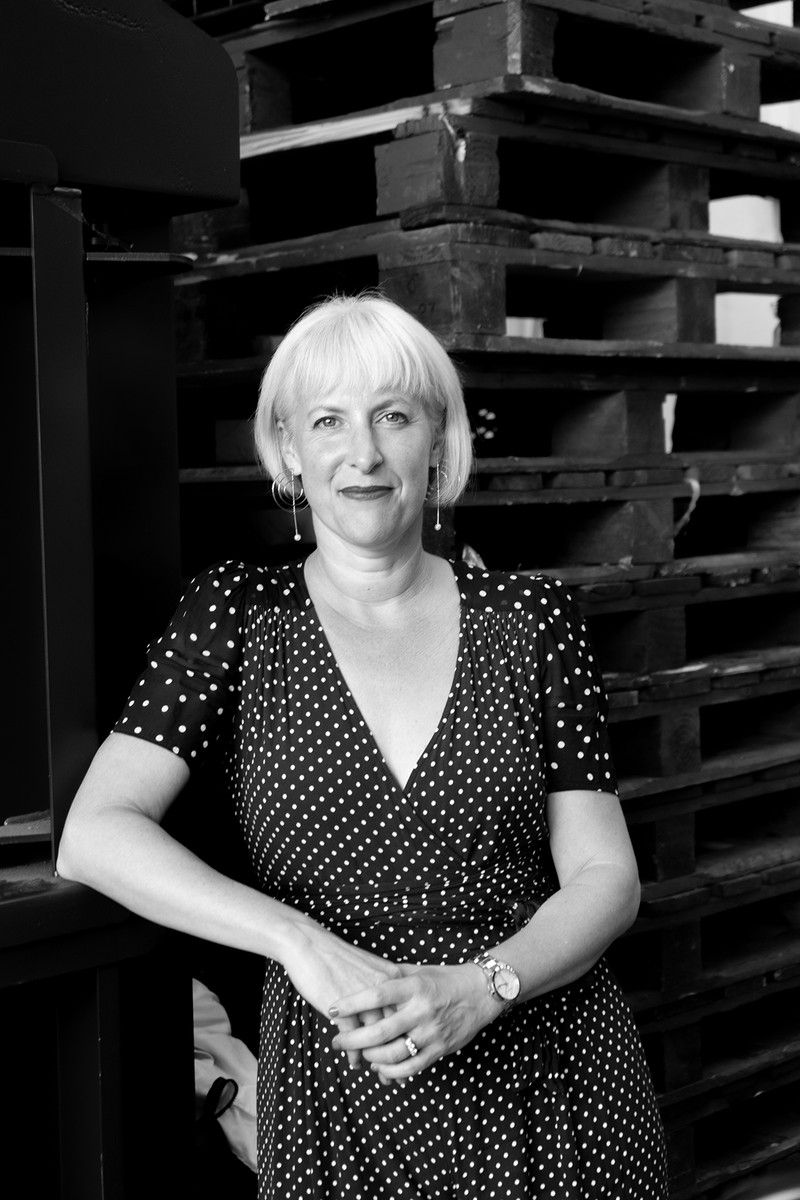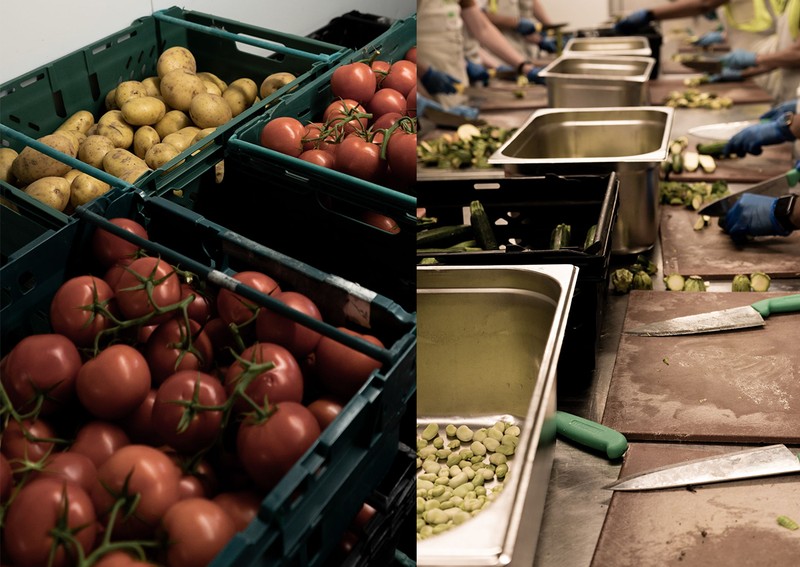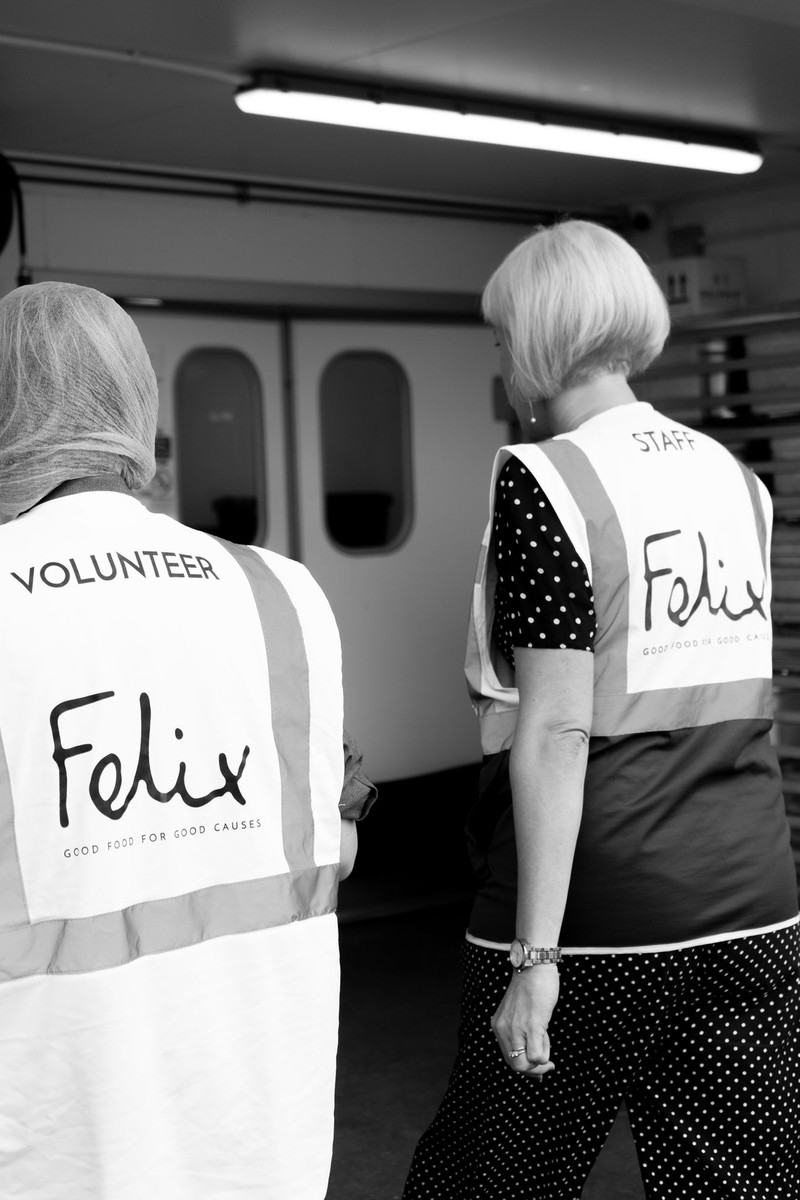Meet The Inspirational Woman Trying To End London’s Food Crisis
Charity is in my blood. My mother did an awful lot of volunteering and was always out in the community doing amazing things. So when I went to university, one of the first things I started doing was volunteering – really to broaden my horizons and experience. I started volunteering at the local MP's office in Birmingham and I ended up working for him for three years, which moved me into a career in Westminster for most of my 20s. There, I worked for Harriet Harman and absolutely loved it. She’s a brilliant and inspiring female role model, an amazing boss, and remains a great supporter and champion of mine to this day.
During my time in Westminster, I did a lot of work with children and young people – and realised that was something I was passionate about. So I went to run policy and public affairs at the NSPCC and did a lot of work around child protection. After a period living and working overseas, I came back and started working for a big national youth charity and eventually took the CEO job when I was 29. After five years I left and set up a couple of campaigns called Step Up To Serve and I Will, both of which came about after I'd sat on a government review for David Cameron. At the end of those campaigns, we were well into a global pandemic, so I took on a direct Covid-response ‘emergency job’ at Children In Need for six months.
After having a child during lockdown, I put my feelers out for a London-based job. That’s how I came across The Felix Project and I haven't looked back. It’s been the most amazing year and a half at an incredibly impactful organisation. Our vision is simple: we want a London where no good food is wasted, and no Londoner goes hungry. We rescue surplus food from all parts of the food industry, and we distribute it to over 1,000 charities across London that are helping the most vulnerable people in our society. We saved 30 million meals last year – from every part of the food supply chain, from the farm gate to distribution centres to supermarkets and even quick-service restaurants.
We're also proud to be part of the Fair Share Network, which includes organisations all over the UK. London has the greatest density of population and the greatest need – so sadly, those 1,000 community organisations we already service are all asking for more food. And we have 600 more on our waiting list, who we can't currently service. The make-up of the people in need has changed dramatically in this cost-of-living crisis. They’re no longer people who are on the margins. These are low-paid Londoners in work – often key workers. It’s a tough time. Often these are people who never thought they would be living in food insecurity in one of the greatest capital cities in the world.
Everybody thought Covid was going to be the biggest crisis we faced around food redistribution. Actually, the cost of living has pushed demand up even further. People were struggling anyway, but couple food inflation with the cost of putting fuel in your car and paying your energy bills, and everyone’s fixed costs have increased. It’s no wonder we are seeing more people just struggling to put food on the table. A survey of low-paid Londoners at the end of last year showed four in ten parents were already skipping meals themselves so they could feed their children. Most of them only had £3 a day to spend on breakfast, lunch and dinner. Having to make that stretch across three meals while the cost of food is so great? It’s clear why people are really, really struggling.
A third of the 600 organisations on our waiting list are primary schools. They’ve come to us because children are coming to school hungry or with empty lunchboxes and they want to set up food banks in the school playground. This is the reality of the challenges we're facing now.
Every part of London has pockets of deprivation. Even the new mayor of Kensington and Chelsea has chosen The Felix Project as her charity for the year. Sure, it’s home to some of the most expensive houses in London, but two of the boroughs there are some of the most deprived in London. All you have to do is turn the corner. Statistics show more than half the children who live in London are living in poverty. So, in all parts of London, you'll find some families who are struggling.
In any job, empathy is your greatest asset. If you can put yourself in the shoes of the person sitting on the other side of the table, that's an incredibly powerful tool because you can come to them with solutions rather than just problems. The reason I really enjoy interacting with government is because I've sat on the other side of the table, and therefore I know the way we are going to partner with them. The public sector, the private sector and government should be working together to think about how we tackle some of the greatest challenges facing society today.
While we live in volatile times, the voluntary sector is used to working with uncertainty. At The Felix Project, we deal with uncertain food supply every day – and an uncertain workforce. We have 8,500 volunteers, so we try to build long-term stable relationships as much as possible. Luckily, The Felix Project is the most positive organisation I've ever worked with. A group of amazing people come together every day to deal with things at a very rapid pace. We don't have the luxury of time in anything we do.
One of our major initiatives this year is looking at how we extend the life of surplus food. One way is through Felix's kitchen, where we’re able to prepare 5,000 meals a day to feed people who don't have access to a kitchen or who can't afford to turn their oven on. Another is through a big project we've just been doing in partnership with the King. With his support, we’ve sent over 800 fridges and freezers to our community organisations and partners, so they can accept more food and freeze it to prolong its life. King Charles III has been the most phenomenal partner for us, and he continues to be a great champion for the work we're doing.
We’re always trying to come up with new ideas of how to work with different partners – and enable those community organisations to do more. For me, that’s the bottom line of everything we do. We’re an environmental organisation that wants to stop food going to landfill, but we also want to make sure we allow those incredible grassroots organisations to do more with the limited resources they have. If they know they're going to get food from us week in, week out, month in, month out, they can use their budgets for other things and achieve more overall.
We'd be delighted if people wanted to come and get involved. There are lots of ways we want to make sure this is an organisation run by London for Londoners. If you want to volunteer, have a look on our website and find out more. You don't have to commit to the same slot every week. You can just do what works for you, whether that's in our depots, in our kitchen, as a driver, as an administrator, and all either by yourself or as a corporate group or a group of friends. People can also help us raise funds. You could run a half marathon for us or be part of the different challenge events or you can become a regular donor. The other thing we always need is food. Anyone who has connections to food supply partners or surplus food should have a look at our website and how they might be able to get involved. It’s an incredibly rewarding and fun way to spend your time.
There are lots of things that make me jump out of bed in the morning. The first is my amazing set of colleagues. Whether they’re paid colleagues or volunteers, we work with an army of phenomenal people who are incredibly passionate about what they do, and that's incredibly motivating. The second thing is the impact. I make sure I go out in our vans at least once a month or do a volunteer shift in one of our four depots. Seeing the difference we’re able to make in our communities is the most motivating thing. This is an incredibly rewarding job, even when it's tough. Every day is so different and it's an absolute privilege to get to do this job.
For more information, visit TheFelixProject.org
DISCLAIMER: We endeavour to always credit the correct original source of every image we use. If you think a credit may be incorrect, please contact us at info@sheerluxe.com.





